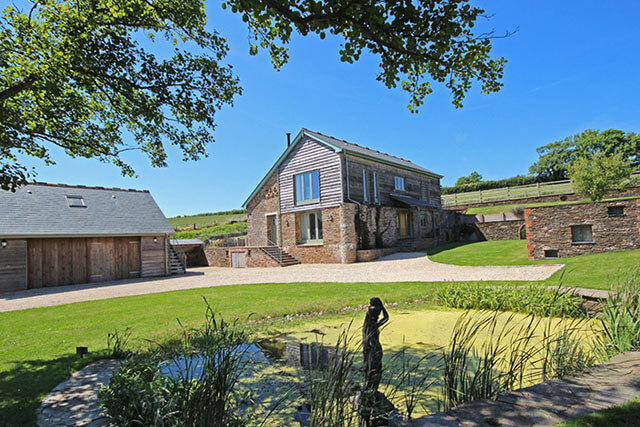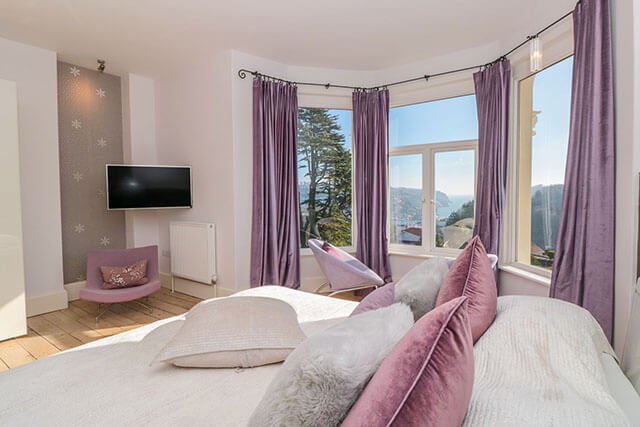Furnished Holiday Let Tax Changes: Which Tax Reliefs Still Apply?
The Furnished Holiday Let (FHL) tax relief regime was abolished in April 2025. As a result, the tax benefits...

As the popularity of holidays in the UK continues to grow, owning a holiday let is both a rewarding and worthwhile opportunity. However, it is crucial to make sure you get specialist holiday let insurance that is right for you and your holiday home, that will give you protection against any unforeseen circumstances.
Read on to understand the importance of choosing the right holiday let insurance cover allowing you peace of mind knowing that you and your property are adequately covered.

For all you need to know about holiday let insurance read further, or use the quick links below to find out about a specific topic:
Holiday let insurance is different to your average home insurance scheme.
It is a specialist form of cover for property owners:
Most holiday lets will not be covered under your standard home insurance, because the risks of a holiday home are seen as greater than your main residence which is occupied throughout the year.

It may come as a surprise, but holiday homeowners could unknowingly leave themselves and their property vulnerable to risk by not having correct and suitable holiday let insurance.
Holiday let home insurance may not necessarily be compulsory by law, but without it you may be liable for costs associated with any accidents involving guests.

Having insurance is meant to protect you and your holiday let, so it is vital to know what it should cover and that you have the right policy in place.
Whatever level of cover you opt for, it’s important to remember that holiday home insurance is different from standard home insurance, because your holiday home is used differently.
The minimum your holiday let insurance should cover are the following:
Any property, including a holiday home, is a major financial investment. It is imperative to make sure that your asset is covered so that in the event it is damaged, your holiday home can be restored.
Holiday let buildings insurance covers the main structure of your holiday home (walls, ceiling, roof) as well as any permanent fixtures and fittings (kitchens, bathrooms, swimming pools), from potential damage by fire, flood, storms or burst pipes.
The cover should protect the main building and external structures like garages, outbuildings and sheds.
This is a specialist cover. Many insurers are unlikely to provide cover for a property that is unoccupied for more than 30 days. Homes that are left empty are at greater risk of damage from bad weather and burglaries, and therefore fall into a higher risk category than most residential homes.
The amount of cover you need for your holiday home should represent how much it would cost to rebuild. The easiest way to work out the cost of rebuilding your holiday home is to enlist the services of a chartered surveyor or visit the Association of British Insurers for guidelines and advice.

Most property owners understand the value of furnishing and equipping a holiday let to a high standard for guests’ enjoyment. Whether intentional or accidental, damage by guests can sometimes be unavoidable.
A comprehensive holiday let contents insurance policy should provide compensation for claims for loss or damage caused by hosting activities. It may also include cover for:
So, whilst providing cover for the contents of your holiday home is optional, without it you run the risk of having to replace valuable items at your own cost. Having holiday let contents insurance removes the worry of letting guests into your home, who might not be as careful as you would be.
If your rental is pet-friendly it is also worth checking that your insurance covers any potential damage that dogs may cause.
When it comes to insurance for the contents of a property, think about how much your items are worth and what it would cost to replace each item. A typical contents insurance policy will cover the cost of replacing your possessions following loss or damage due to a variety of events like theft, fire, storms, flooding and water leaks. Cover will vary from policy to policy, so always check the details before taking out the insurance.

Public liability insurance for a holiday letting business is essential. Without it, you could potentially be exposing yourself legally and financially if your guests are injured. Having public liability cover enables you to safeguard yourself from legal hassles and compensation claims in the event someone slips, trips, or has an accident.
It is particularly important to have this cover if your holiday let has a swimming pool or hot tub, as these are areas that accidents are most likely to take place.
Liability insurance will indemnify you against your legal liability to pay damages and legal costs. The cover should not only include yourself and your guests, but if there is damage to someone else’s property from the likes of fire or flooding.
Claims can be expensive to defend, and successful claims can be very costly where compensation is required, so a minimum indemnity limit of between £2 and £5 million is recommended.
While public liability insurance is not required by law, employers’ liability insurance is a legal requirement for anyone who directly employs an individual. If you have a cleaner, gardener, property maintenance person or seasonal staff, then it is your responsibility to have this cover.
This protects you in the event of an employee having an accident and claiming for injuries. The minimum legal requirement for employers’ liability insurance is £5 million, but a lot of insurers provide cover of £10 million as standard.

Whether you already own your holiday cottage or plan on buying a property with the intent to let it out commercially, it is imperative to inform your mortgage lender. If you intend to take out a mortgage, not only will it influence the type of loan, but having a specialised holiday let insurance cover may be required by the lender.
Read our comprehensive blog on holiday let mortgages for everything you need to know when buying a holiday cottage.
In the unlikely event that something serious happens during the holiday letting season, which results in your holiday property becoming ‘uninhabitable’ due make sure you are covered for the following costs.
Alternative accommodation: If your holiday let is occupied and the worst happens, you will need to make sure you provide alternative accommodation for your guests. Your holiday let insurance should cover these expenses.
Emergency travel expenses: In the event of an emergency, holiday let owners who don’t live near a property may need to visit and oversee repairs or get things fixed, which can be costly.
Loss of rental income: If your holiday let becomes uninhabitable, your revenue from current and future bookings could be lost. It is advisable to make sure your policy covers you for this loss, so that you aren’t out of pocket.
While most holiday let insurance policies factor in that the property may remain unoccupied for a length of time, it is still worth checking if there are any restrictions which could invalidate your insurance.

No matter how prepared you are, you can never completely rule out the chance of damage to your holiday home during the winter months. There are often specific clauses you’ll need to adhere to, such as draining water tanks or maintaining a minimum temperature to prevent pipes from freezing during cold spells.
For more useful information about how to protect your holiday let out of season, read our guide which covers a breakdown of our top winter maintenance tips for your holiday home.
The cost of your insurance policy will depend on the level of cover you require. Insurance providers will use a number of factors when calculating your premium – everything from your holiday home’s location, size, type and security systems to its risk of flooding or subsidence. This will all be factored in to ascertain how likely the insurer thinks you are to claim, and how extensive your cover should be.

No matter the location, every holiday home is unique and with that so are its insurance requirements. With years of experience and over 450 properties across Devon, our local Coast & Country Cottages team is able to offer you guidance on everything to know about holiday let insurance in South Devon.
If you’re looking for holiday let insurance, let us introduce you to two trusted partners who may be able to help, Pikl and Gallagher:
For Holiday Let Insurance from Pikl, please go to Pikl. Or call 0800 157 7027
Sykes Cottages Ltd is an Introducer Appointed Representative of Pikl Insurance Service Limited Registered Number 10449346 who are authorised and regulated by the Financial Conduct Authority firm number 773457. Registered Office: Suite B, 2nd Floor, The Atrium, St Georges Street, Norwich, England, NR3 1AB.
For Holiday Let Insurance from Gallagher, please call 01625 855746
Sykes Cottages Ltd is an introducer appointed representative of Arthur J. Gallagher Insurance Brokers Limited which is authorised and regulated by the Financial Conduct Authority. Registered Office: Spectrum Building 7th Floor 55 Blysthwood Street, Glasgow G2 7AT. Registered in Scotland. Company Number: SC108909.
Understanding which holiday let insurance you need is just one of the many holiday let rules and regulations you should be aware of.
Whether you are considering investing in a holiday let in Devon and want to know the right level of holiday home management service to suit your requirements, or if you need more information on how to start a successful holiday let business, call our locally based team and they’ll be able to help. Alternatively, download our free Owners Guide for an insight into our services and how we can help you.
Request your free owners guide
Please Note: The information contained in this article was accurate at the time of writing, based on our research. Rules, criteria and regulations change all the time, so please contact our prospective new owner team if you’d like to hear how. Nothing in this article constitutes the giving of financial, tax or legal advice to you; please consult your own professional advisor (accountant, lawyer etc). in this regard. If we have referred within the article to a third-party provider of unregulated holiday let mortgages, this is due to the fact that such mortgages aren’t currently regulated by the FCA.
As a helpful reminder, your home may be repossessed if you do not keep up repayments on a mortgage, so again anything you decide to do in this particular area this is one on which you should take your own professional advice on too, as we aren’t providing and can’t provide you with this.
As a holiday letting owner you are responsible for compliance with health & safety laws, regulations and guidance, and for having suitable insurances in place (not Sykes Holiday Cottages or its brands (Sykes)). From time to time, Sykes shares information with you on the topic of health and safety and insurance. When it does so, it is not providing you with advice (legal, financial, tax or otherwise); please seek your own as you see fit. In addition, it is not making any representations or warranties about the information being complete or free from errors or inaccuracies. Sykes shall not be liable for any loss or damage arising under or in connection with your reliance on it.
Discover how a local brand with national reach can work for you. We're a British Travel Award winning holiday letting agency, priding ourselves on delivering consistent year-round bookings and bespoke property management options.